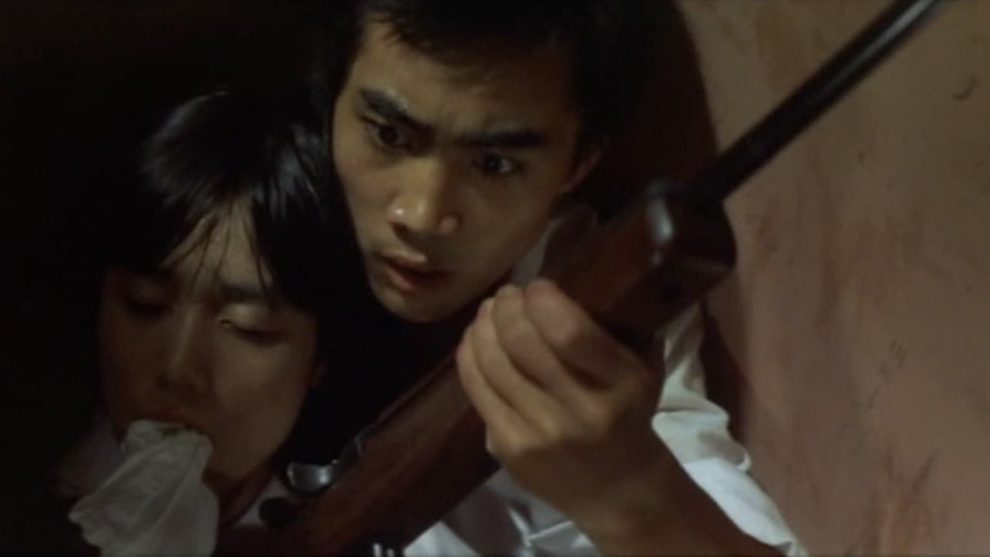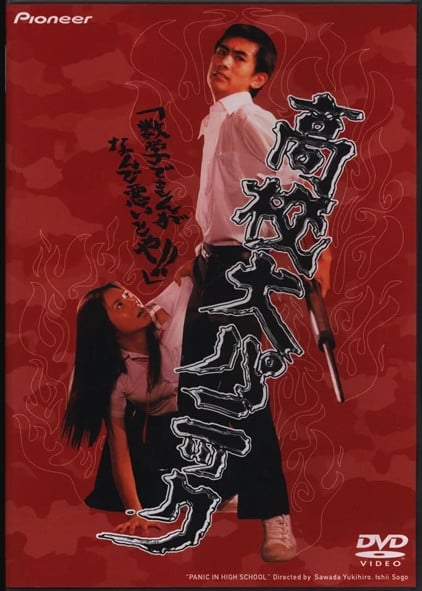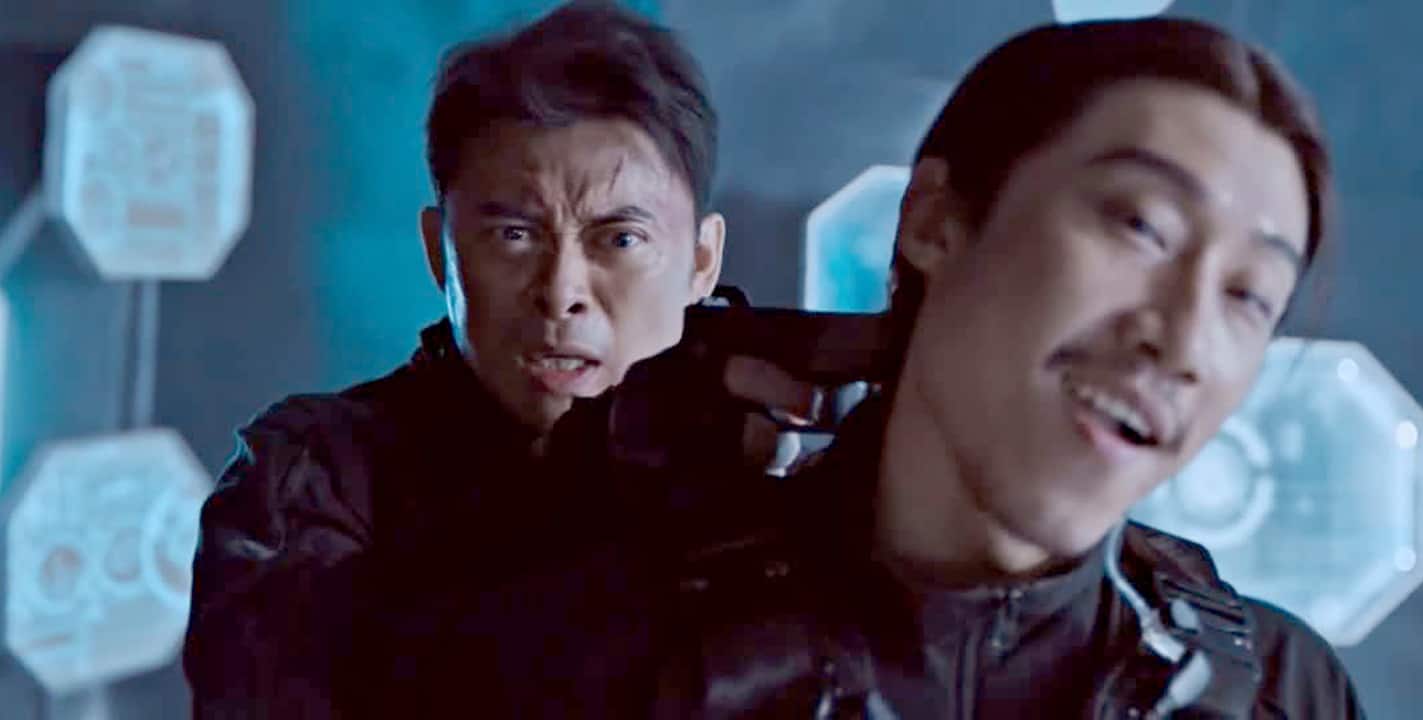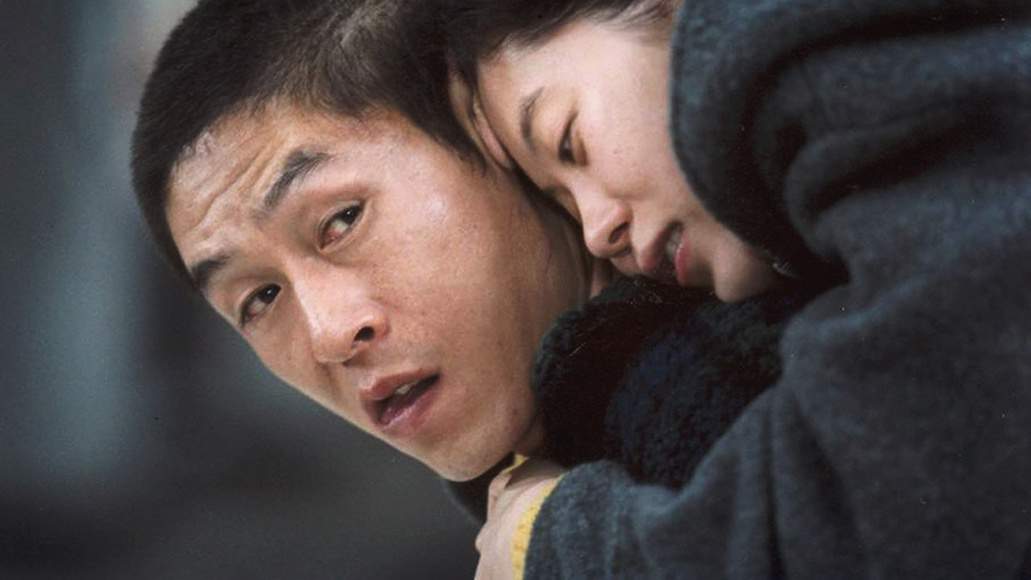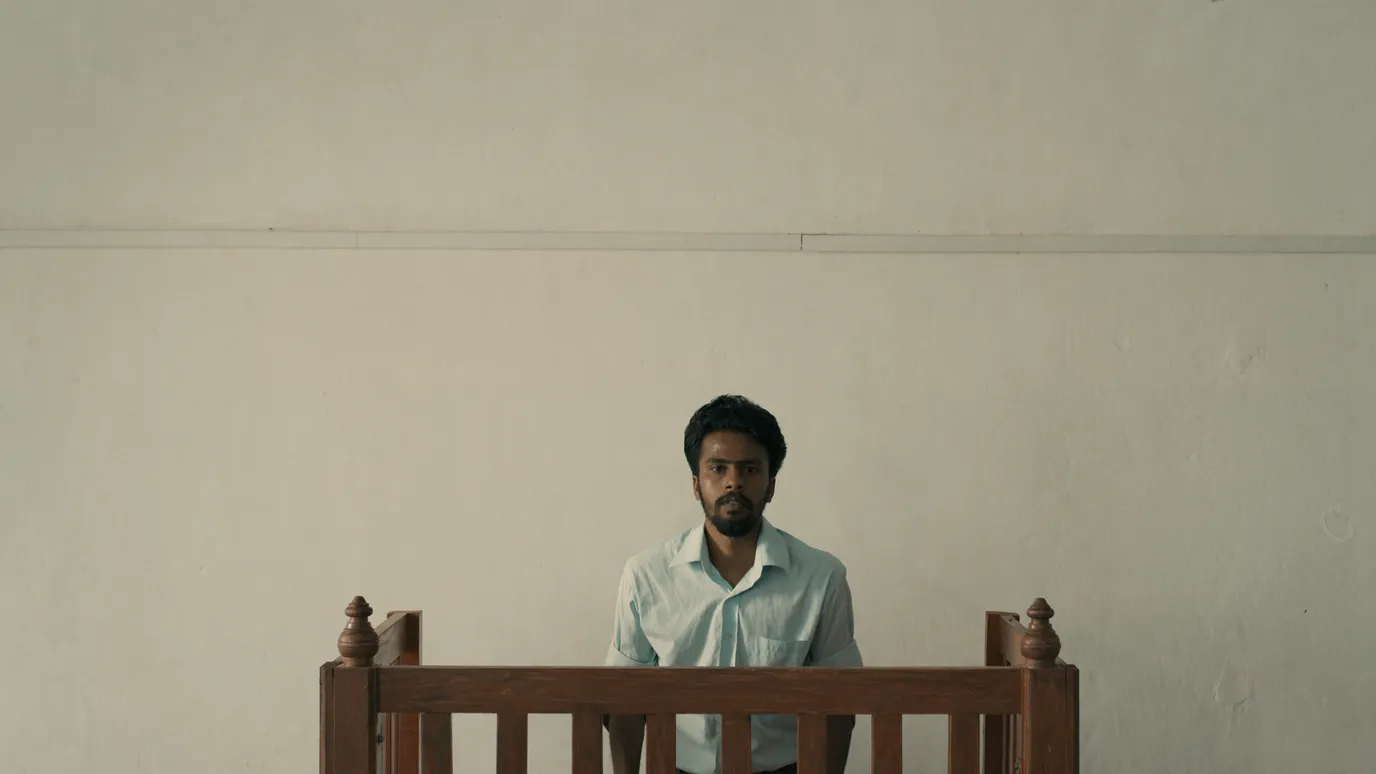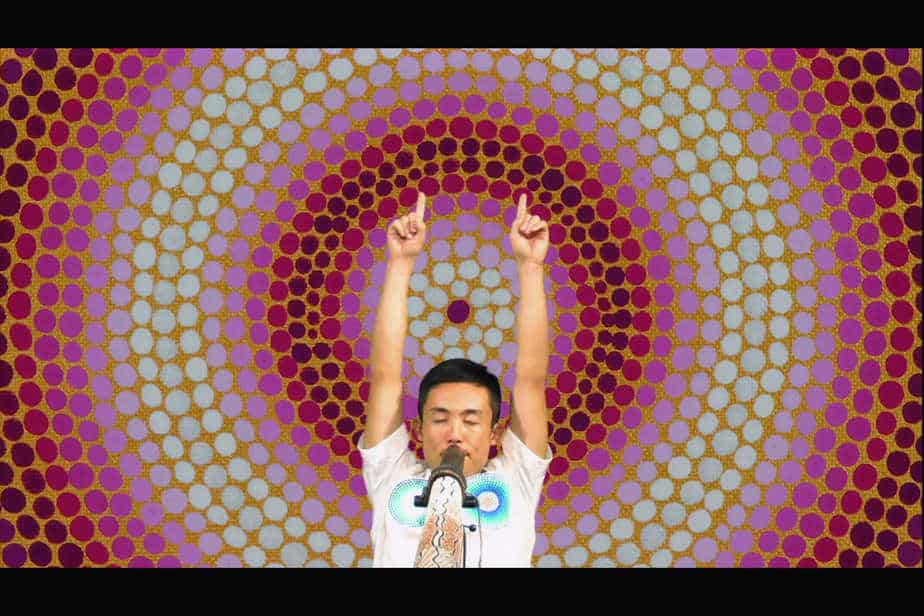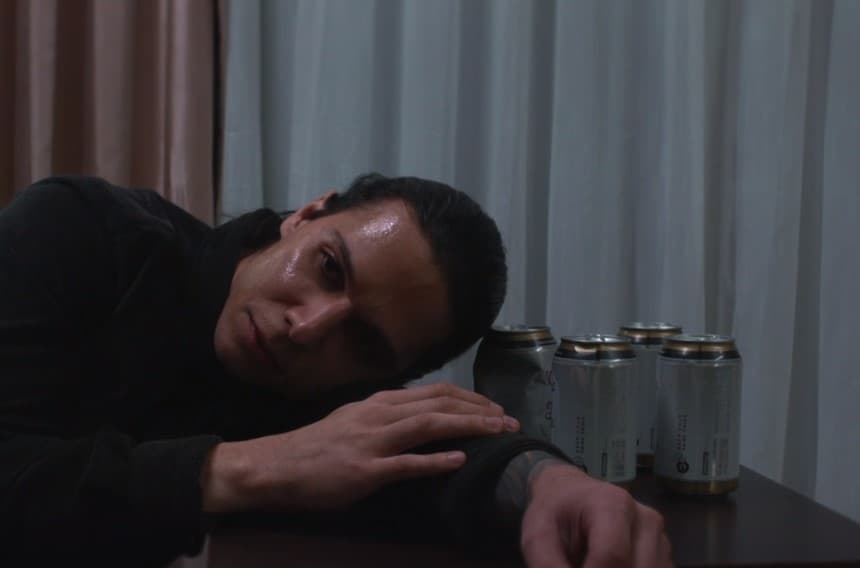Remake of his own, first 8mm film, which played to sold-out Tokyo movie houses back in 1977, “Panic in High School”, is an impressive film, particularly when one considers that Ishii was just 20 years old when he shot it. Nikkatsu did not take any chances, however, adding Roman Porno veteran Yukihiro Sawada to help with the direction, in a collaboration that resulted in a truly punk production that thrives on its tension.
The film begins with a school kid counting his steps from the street to the top of block of flats, just before he jumps from the roof, in a rather shocking and indicative for what is about to follow intro. The news of the suicide shake the student body of the school the young man attended, but the school master has nothing but a few vague words for the tragic incident, instead asking them to focus on their studies, since the University entrance exams are upon them. Even more insensitive, however, is the attitude of the math teacher Ihara, who even turns down the plead of a student to talk about the incident, instead ordering them to focus on the given lesson. It is then that another student, Jono, bursting with tension, attacks the teacher, before he escapes the school in panic. While Ihara continues almost as if nothing has happened, Jono manages to steal a rifle and a number of boxes of bullets from a shop, and soon returns to school, shooting Ihara, and injuring a girl by accident.
Inevitably, panic follows, as the police arrive at the scene headed by Detective Kurita, but Jono does not seem willing to surrender, instead attacking everyone in his path, including policemen and other students. Eventually, the police forces manage to corner him in a classroom, where he has fortified himself into, along with a number of students he holds hostages, including Murakami, a beautiful young girl from his classroom. Soon, the press, the parents of the students involved, a number of curious bystanders, and the Special Forces arrive at the scene.

Starting with Jono's initial attack to Ihara, a rather palpable tension begins within the film, and never actually ceases, in one of those movies that grab the viewer by the neck and never leave him, as the angst piles up with every successive scene. Every aspect of the film adds to this approach. Akira Suzuki's frantic editing, Ishii's direction of both the main characters and the plethora of extras which mostly seem to run as Jono attacks or the police try to save them, and Yoshihiro Yamazaki's cinematography that highlights the claustrophobic setting the school turns into. Furthermore, each new presence in the film, the police, the parents, the press, the bystanders are shown in a way that adds to this approach, even when Ishii offers a kind of comic relief, through the mocking appearance of a group of rightists and a man who insists that running is the solution to all. The same applies to the Rock'n'Roll sounds by Space Circus, but most of all, to Shigeru Yamamoto's fittingly excessive performance as Jono, whose despair, madness and resolve are emitted from every pore of his constantly sweating face and hands.
At the same time, inside all this chaotic approach, Ishii also manages to present a number of sociopolitical comments, some directly and some more subtly, through some brief scenes here and there. The pressure the students face in order to pass the university exams is the main factor here, with both the suicide and Jono's actions being presented as its direct outcome. The idiotic attitude of the school, whose directors and teachers only care for the number of admissions to universities that will boast the establishment's fame, is another comment, with the whole concept of not harming the fame adding to rather bleak portrait of the education system the movie presents.
That some of the students are essentially brainwashed by this policy is also presented on numerous occasions, particularly through the discussions of the students, some of which even admire Ihara for his efficiency, while the way a captive student tells off Jono for his grades highlights this aspect even more intently. The finale and Jono's despaired, illogical attitude also move towards this direction.
That the background of the students also plays a factor to this pressure is also presented at some point, particularly through the parents. Jono and Murakami's (her single mother) are depicted as members of the lowest castes of society, who could not help their children due to their situation, but did not find support from institutions like the school also. The attitude of a father that is also an entrepreneur and tries to promote his business in this situation also adds to this comment. That the police also do not care in particular about the students, but mostly for their fame is another comment, with Kurita's shady handling of the case, and particularly the finale highlighting both the aforementioned comments.
The role of the public, the press and the jingoists is also presented, although this time, in a more humorous fashion.
Lastly, and in a comment about teenage libido that winks at the pink film, Jono lusts rather evidently for Murakami in two occasions, which end up, though, intensifying the anxiousness he feels even more.
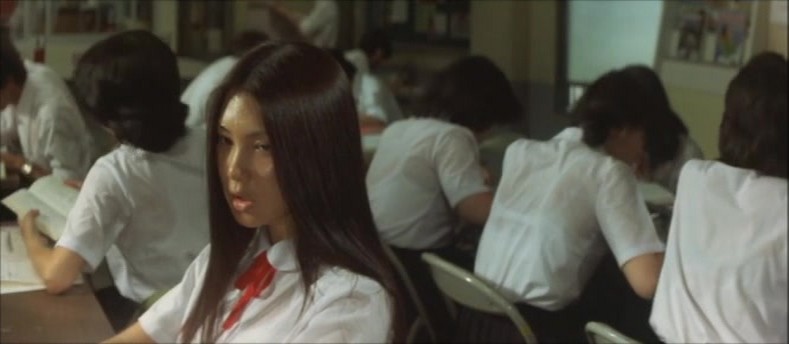
And talking about Murakami, Atsuko Asano also gives a very convincing performance, with her few words and attitudes being implemented excellently, while Ishii takes care of picking her out from the plethora of students through a number of brief but meaningful shots, that also highlight her beauty. The sequence in the lab and particularly the peeing scene, are the highlights of her performance. The third actor that stands out is Yoshiro Aoki as Kurita, whose harsh, cunning, and anxious demeanor is depicted rather convincingly. As is quite frequently the case in Japanese cinema, however, the movie could do with a bit of less screaming by the many actors, which does become somewhat annoying after a point.
“Panic in High School” is an impressive film, that thrives both in its atmosphere and context, and a great sample of the directorial abilities of Sogo Ishii, which had just started to manifest.


